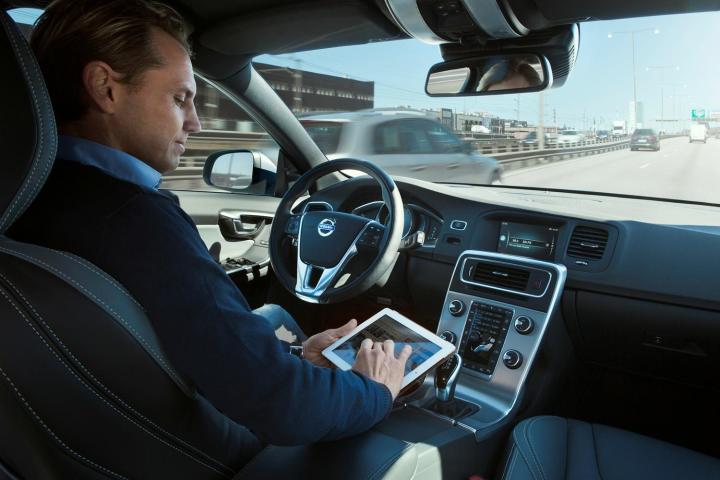
Suppliers like Bosch, for example. The German company will soon roll out technology needed to let cars drive themselves on highways and autonomously change lanes, according to Automotive News (subscription required).
Bosch says it has contracts to supply radar, cameras, control units, and other equipment in 2017 and 2018. It’s part of a four-stage timetable the company plans to use to introduce the technology.
Beginning in 2017, Bosch plans to offer “integrated highway assist,” which allows a car to travel at speeds up to 75 mph on the highway, while remaining in its lane.
In 2018, this will be augmented with a “highway assist” system that allows the car to change lanes by itself. Both systems still require a human driver to monitor the road.
By 2020, Bosch expects to equip cars with a “highway pilot” that can essentially take over all driving tasks, although a human may need to intervene sometimes.
Finally, by 2025 Bosch plans to have an “auto pilot” system that can drive a car from point A to point B without any human involvement.
Bosch says it has a customer for the “integrated highway assist” and “highway assist” systems, but the other, more advanced systems aren’t ready for production yet.
The company already supplies components for traffic-jam assist to carmakers. This feature is basically a low-speed cruise control that allows cars to accelerate and brake themselves in traffic.
Bosch is also working with Google on its self-driving car project, supplying electric motors and long-range radar.
The company’s plans echo those of Mercedes-Benz, Nissan, Tesla, and other carmakers that plan to gradually introduce autonomous vehicles by building on systems that already offer limited self-driving capability.
With the first milestone on Bosch’s timeline just a couple of years away, we’ll soon see if those plans come to fruition.
Editors' Recommendations
- The 10 best car battery brands in 2024
- Waymo robotaxi attacked and set on fire in San Francisco
- This Graco car seat lasts for ten years, and it’s 25% off for Black Friday
- Cruise’s robotaxi service suspended by California regulator
- Dubai Police to deploy driverless patrol cars with AI smarts


